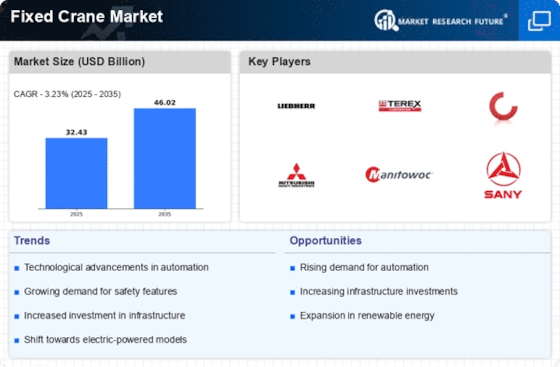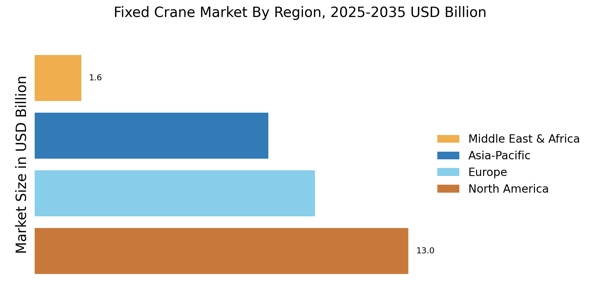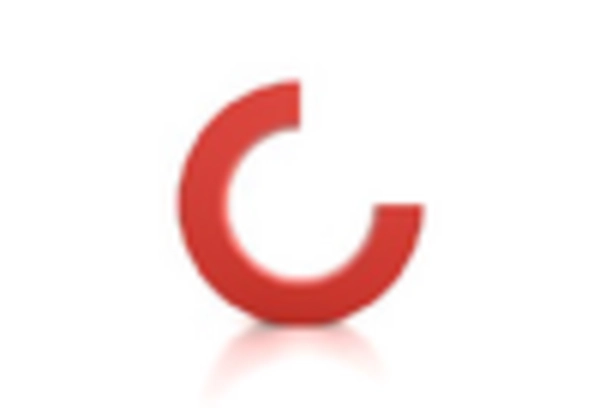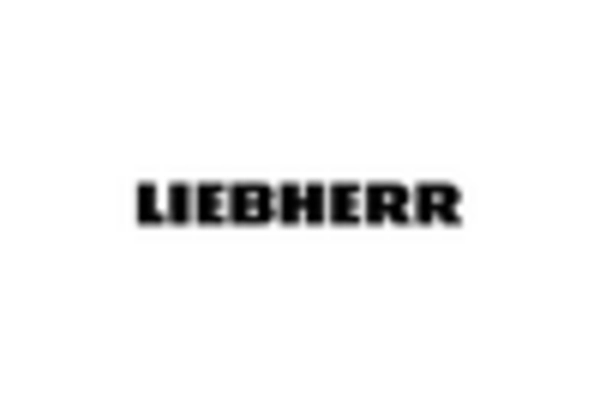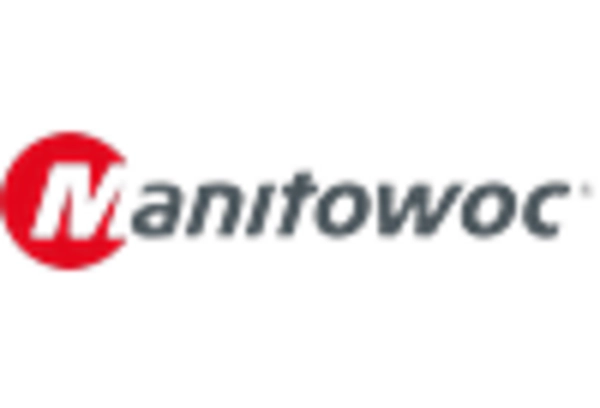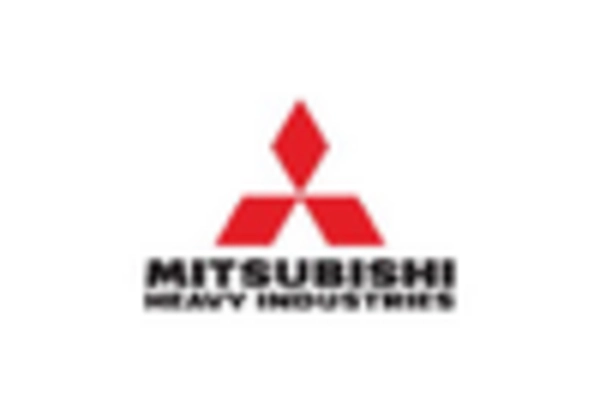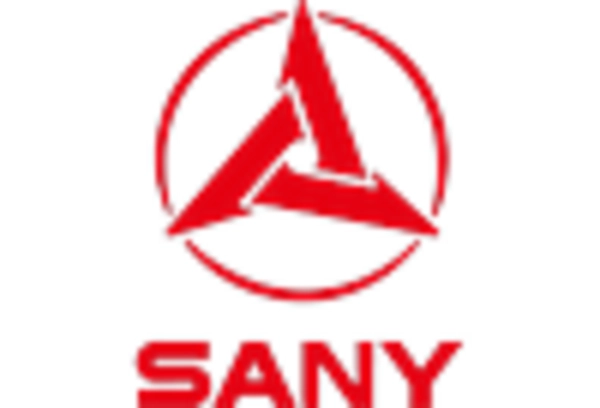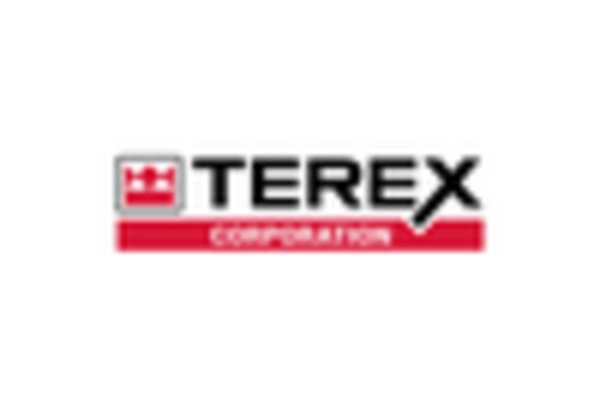Sustainability Initiatives in Fixed Crane Market
Sustainability has emerged as a pivotal driver within the Fixed Crane Market, as companies increasingly prioritize eco-friendly practices. The demand for energy-efficient cranes is on the rise, with manufacturers focusing on reducing carbon footprints through innovative designs and materials. For example, electric and hybrid cranes are gaining traction, offering lower emissions compared to traditional diesel-powered models. This shift is supported by regulatory frameworks that encourage sustainable construction practices. Market data indicates that the segment for electric cranes is expected to grow by approximately 25% over the next five years. As stakeholders become more environmentally conscious, the emphasis on sustainability is likely to shape the future landscape of the Fixed Crane Market.
Technological Advancements in Fixed Crane Market
The Fixed Crane Market is experiencing a notable transformation due to rapid technological advancements. Innovations such as automation, IoT integration, and advanced materials are enhancing the efficiency and safety of fixed cranes. For instance, the incorporation of smart sensors allows for real-time monitoring of load conditions, which minimizes the risk of accidents. Furthermore, the use of lightweight yet durable materials is reducing the overall weight of cranes, thereby increasing their lifting capacity. According to recent data, the adoption of these technologies is projected to increase operational efficiency by up to 30% in the coming years. This trend not only improves productivity but also aligns with the industry's shift towards more sustainable practices, making technological advancements a key driver in the Fixed Crane Market.
Increased Infrastructure Development in Fixed Crane Market
The Fixed Crane Market is significantly influenced by the ongoing surge in infrastructure development projects worldwide. Governments and private sectors are investing heavily in construction, transportation, and energy sectors, which in turn drives the demand for fixed cranes. For instance, large-scale projects such as bridges, highways, and renewable energy facilities require robust lifting solutions. Recent statistics reveal that infrastructure spending is projected to reach trillions of dollars in the next decade, creating a favorable environment for the Fixed Crane Market. This trend not only boosts sales but also encourages manufacturers to innovate and expand their product offerings to meet the diverse needs of the construction sector.
Growing Demand for Specialized Fixed Cranes in Fixed Crane Market
The Fixed Crane Market is witnessing a growing demand for specialized cranes tailored to specific applications. Industries such as shipbuilding, mining, and heavy manufacturing require cranes that can handle unique loads and operate in challenging environments. This trend is prompting manufacturers to develop customized solutions that enhance operational efficiency and safety. For example, cranes designed for maritime applications must withstand harsh weather conditions while maintaining high lifting capacities. Market data indicates that the segment for specialized fixed cranes is anticipated to grow at a compound annual growth rate of 15% over the next five years. This shift towards specialization is likely to redefine competitive dynamics within the Fixed Crane Market.
Rising Urbanization and Construction Activities in Fixed Crane Market
Urbanization is a critical factor propelling the Fixed Crane Market, as more people migrate to urban areas, leading to increased construction activities. The demand for residential, commercial, and industrial buildings is escalating, necessitating efficient lifting solutions. As cities expand, the need for high-rise buildings and infrastructure projects becomes paramount, thereby driving the demand for fixed cranes. Market analysis suggests that urbanization rates are expected to rise, particularly in developing regions, which will further stimulate the Fixed Crane Market. This trend presents opportunities for manufacturers to cater to the growing needs of urban construction, potentially leading to increased market share and profitability.


